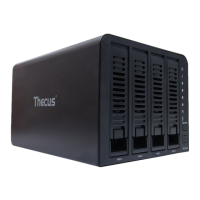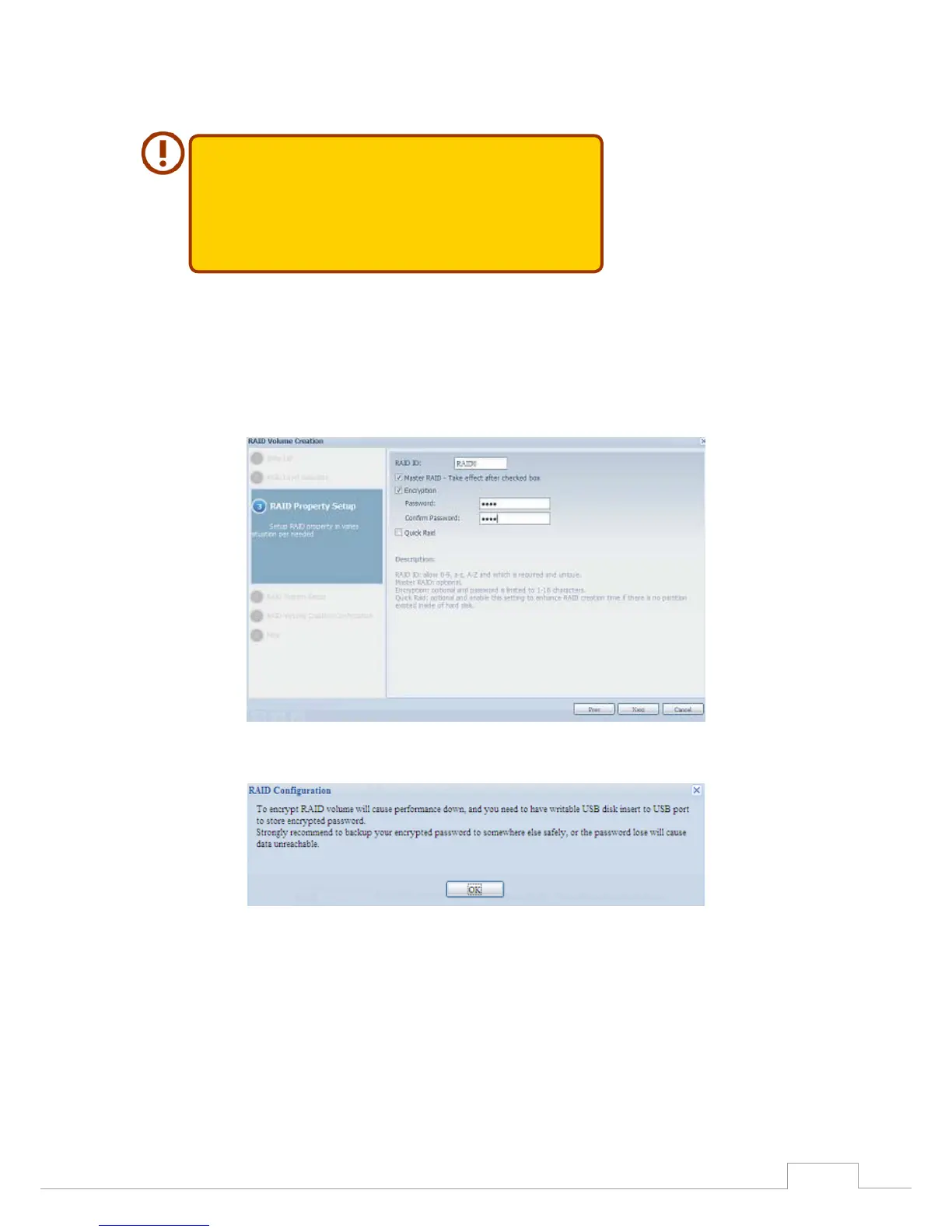If this RAID volume is meant to be the Master RAID volume, tick the Master RAID checkbox.4.
In a multiple RAID conguration, one RAID volume must be designated
as the Master RAID volume. The Master RAID volume will store all
installed modules. If the Master RAID is changed to another location
(i.e. assigning volume 2 to be the Master RAID volume after volume 1
had been previously assigned), then all modules must be reinstalled.
In addition, all system folders that were contained on the Master RAID
volume will be invisible. Reassigning this volume to be the Master RAID
will make these folders visible again.
Selected whether the RAID volume will be encrypted or not. 5.
The RAID volume can protect data by using RAID Volume Encryption function to prevent
the risk of data exposure. To activate this function, the Encryption option needs to be en-data exposure. To activate this function, the Encryption option needs to be en-activate this function, the Encryption option needs to be en- this function, the Encryption option needs to be en-the Encryption option needs to be en- Encryption option needs to be en-needs to be en-
abled while the RAID is created and followed by a password input for identification. Also,
an external writable USB disk plugged into any USB port on the system is required to save
the password you have entered while the RAID volume is being created. See the screenshot
below for details.
Once the Create button has been pressed with the Encryption checkbox enabled, the following
message pop-up will appear for confirmation.
After the RAID volume has been created, you may remove the USB disk until the next time the
system boots. The RAID volume cannot be mounted if the USB disk with the encryption key isn’t
found in any system USB port when the volume is accessed. To activate the encrypted volume, plug
the USB disk containing the encryption key and into any system USB port.
We strongly recommended copying the RAID volume encryption key to a safe place. You can find
the encryption key file from the USB disk in the following format:
(RAID volume created date)_xxxxxx.key

